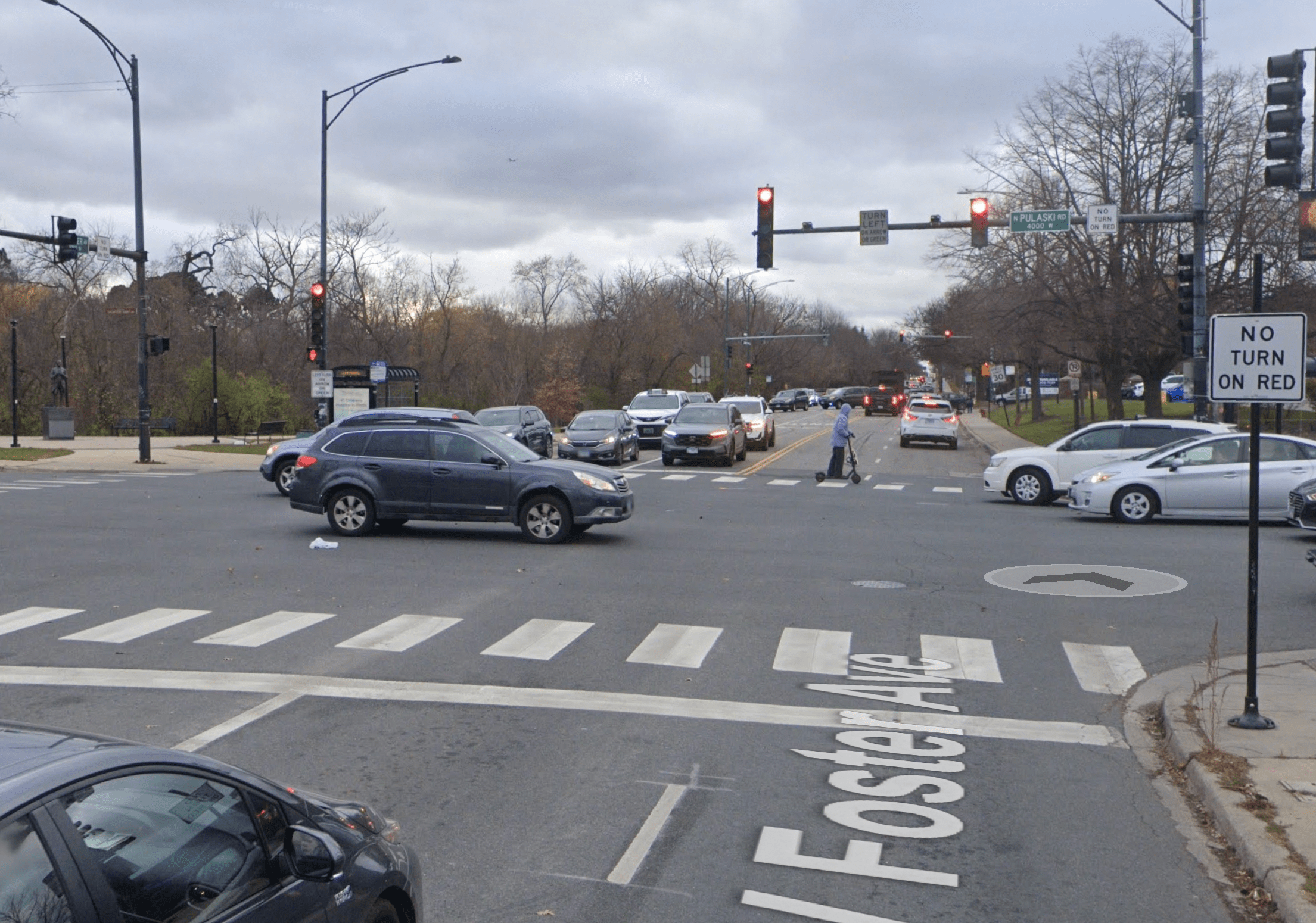Lynda Lopez has written many articles for Streetsblog Chicago on housing affordability issues associated with new transportation amenities like recreational trails and transit-friendly housing. Earlier this week she appeared on WTTW’s “Chicago Tonight” show with host Eddie Arruza and WBEZ reporter Natalie Moore, the author of “The South Side,” to discuss Chicago's displacement problems. I recommend taking some time to watch this important conversation in its entirety, but if you’re in a hurry here are some of the key talking points.
00:00 Arruza explained that this discussion was inspired by gubernatorial hopeful Chris Kennedy’s recent claim that Chicago mayor Rahm Emanuel has a “strategic gentrification plan” to push African-Americans out of the city so that there is a lower percentage of low-income and working-class residents and a higher percentage of affluent ones. “A new wave of gentrification defines a city which, as it gets smaller, is getting whiter,” Kennedy said. Emanuel has countered that the candidate’s accusation is “hallucinatory.”
01:15: Asked about Kennedy’s allegations, Moore argued that Kennedy was misusing the term gentrification, which she called the “the most misunderstood word in the city when we’re talking about urban planning.” While gentrification is defined as an influx of wealthier people to a neighborhood, which often prices out poorer residents, Moore said that’s generally not what’s happening in local African-American neighborhood that are seeing an exodus of residents due to issues like crime, foreclosures, lack of job opportunities, and underfunded schools. “We don’t see gentrification in Roseland or Pullman.”
03:50: When Lopez was asked if she was surprised by Kennedy’s assertion that Emanuel is intentionally pushing people out of the Chicago with policies that deny resources to lower-income communities, she said she was mostly surprised by the “blatancy” of Kennedy’s language. “However, she added, “there’s a lot of people who believe that narrative in Logan Square, Humboldt Park, and Pilsen.” These largely Latino neighborhoods have become whiter and more affluent in recent years, with more upscale retail and development, plus rising property values and housing costs. Between 2000 and 2014 Logan Square lost 19,200 Latino residents, while Pilsen lost 10,300 during roughly the same period.
06:25: Asked if the loss of residents of color is the result of a concerted effort by the administration, Moore, like Lopez, didn’t say she agreed with Kennedy assessment but noted that “he tapped into a sentiment that is widespread in Black communities that things are not working for them.” She added that the roots of many of these problems go back decades. For example, while in 2012 Emanuel closed 50 public schools, mostly in lower-income neighborhoods, the current segregated state of Chicago schools can be traced back to Richard J. Daley-era policies that kept African-American children in separate-but-unequal facilities.
08:15: Arruza asked Lopez about her response last month on Twitter to a young Latino man who asked “How do I discourage my white friend from moving to Pilsen? I'm tryna be polite but assertive in protecting Latino neighborhoods from further gentrification.” (In Lopez's tweet, below, "ses" refers to socio-economic status.)
I would tell him to ask himself:
1. What does my presence mean in this nhood?2. What is my interest in moving there?3. Do I understand the context?4. What is my racial & ses background in relation to the nhood? https://t.co/C1qsZkJnNm
— Lynda Lopez (@Lyndab08) December 13, 2017
“I think it’s important to ask question about who you are and what’s the history of the neighborhood,” Lopez clarified. “I’m not saying that person shouldn’t move in. It’s more like, think about who you are and what you’re bringing to the neighborhood so you don’t come in thinking you’re entitled to everything or you’re they’re as a savior. I think it’s important for us as people not to live in islands in our homes but think about how we are going to form a part of the community, to be part of the fabric.”
10:35: Asked what she would recommend that the city do to help struggling communities, Moore said she’d like to see the city put the same resources into improving life for people on the South and West sides as it does in wealthier parts of town. “We’re seeing the city bend over backwards to bring Amazon here,” she said. “What kinds of good deals can the city put together to bring industry to neighborhoods that have been hit by unemployment? I think we have a lot of piecemeal policies here, but it has to be much broader, strategic, and in-depth.”





